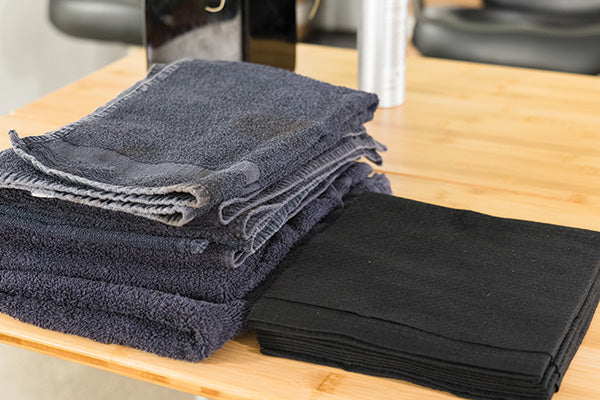The survey into Sustainability in the Beauty Industry, published this summer by Sustain Beauty Co, showed a few surprises alongside some confirmations of our long held suspicions. Sustainability is highly popular in the most populous state, California, while the smaller, more southern states still seem reluctant to prioritize change. In this second year of the SBCo survey, we highlight the beauty champions state-wise in the sustainability beauty stakes.
#1 - Oregon
Sustainability Superpower: Just about everything. Nearly 70% of energy generated in Oregon in 2023 came from renewable resources, the recycling rate is twice the national average and carbon emissions per capita are half the national average. Nice to think of hairdryers powered by wind and when that day comes, you can be sure it’ll be in the hands of an Oregonian.
Is Beauty Buying It? Absolutely. Every beauty professional and owner who participated in the SBCo survey considers sustainability “extremely important”. That’s 100% from Oregon.
What to watch: 75% of Oregonians are “somewhat likely”, and 12.5% are “extremely likely” to switch to sustainable brands and practices, a total of 87.5% considering change.
#2 - California
Sustainability Superpower: where do we start? With all that sunshine, solar is a major industry powering all those water heating systems and straightening irons. It’s got the best water quality and uses less energy than most other states. It’s that sunshine again.
Is Beauty Buying It? Californian professionals are supercharging positive change with 68.25% of Californians rating sustainability “extremely important”.
What to watch: Like its northern neighbor, California is eyeing up sustainable alternatives. Nearly 98% stated they were likely to change their lifestyle or business practices to be more sustainable. As the largest economy in the country, this state will be the one to create innovative ways to amp up profits alongside conserving resources.
#3 - Colorado
Sustainability Superpower: Recent legislation in the central state will see mass investment in eco initiatives, including geothermal energy development – digging down to source heat from underground. It’s a cheap way to heat water for services.
Is Beauty Buying It? Eh, yeh! More than three-quarters of those surveyed consider sustainability as “extremely important”.
What to watch: True to their hikers and attachment to the outdoors, Coloradoans are amongst the top recyclers with 90% stating they recycle in the salon. The state leads in waste management, and with beauty waste being the top rated concern from survey contributors, this state will be an important leader for our industry.
#4 - Washington
Sustainability Superpower: These guys are universally on the same page about sustainability, believing others are on the same page as them on how important it is to be stewards of the planet. 100% stated others felt it was either “extremely” or “somewhat important” which is unusual in comparison to other states. This agreement for change is reflected in the region's philanthropic history along with their tech prowess as it comes to renewable energy.
Is Beauty Buying It? One in three industry professionals in Washington rate sustainability as “extremely important” and the rest as “somewhat important”. No slackers there on the green frontier.
What to watch: a respectable 41.18% are “extremely likely” to switch to sustainable brands.
#5 - New York
Sustainability Superpower: The Empire State has been bitten by the sustainability bug. In April it was ranked third on the Forbes Sustainability Index for low water and energy usage and for its solar friendliness while it has dominated the sustainable new build list for the past few years.
Is Beauty Buying It? Beauty reflects the statewide consensus on sustainability. Nearly two-thirds of New Yorkers consider sustainability “extremely important”.
What to watch: New Yorkers are feeling the pressures of raising labor rates, inflation, and space, so it’s no surprise that over 72% of them have an action plan as it relates to sustainability and conservation. It pays to work smarter, not harder, in the Big Apple. To read more on the survey and the key results to watch, download the full report.









